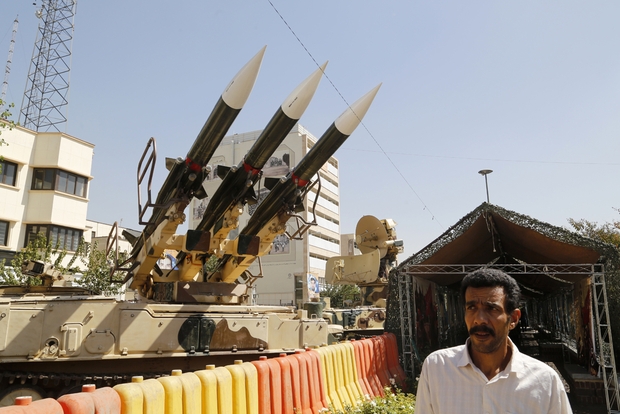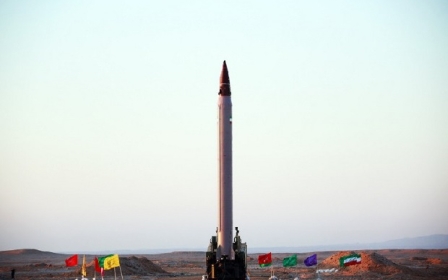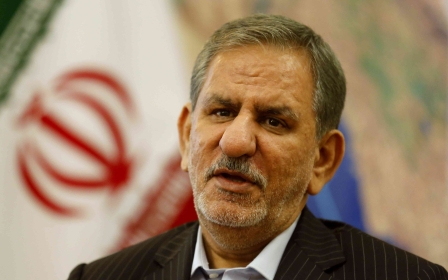Trump administration will let Iran nuclear deal live, US officials say

The United States decided not to reimpose sanctions on Iran's nuclear programme on Wednesday despite President Donald Trump's criticism of the deal Tehran signed with the previous US administration.
But, while the waiver on the nuclear-related sanctions was renewed, the US Treasury imposed new measures to punish Iranian defence officials and a Chinese business tied to Tehran's missile programme.
The decision not to renew sanctions came just two days before Iran is due to go to the polls in a key election and may prove a boost for President Hassan Rouhani, who signed the deal and is seeking re-election.
Under the terms of the 2015 deal, the administration of president Barack Obama agreed to waive sanctions on Iran's nuclear programme in return for strict controls to prevent its developing a bomb.
Some of those waivers come up for review this week, for the first time since Trump was elected after warning during his presidential campaign that he might rip up the agreement.
But Washington's top diplomat for the Middle East, Stuart Jones, said in a statement that the department had told Congress that "the United States continues to waive sanctions" that were lifted under the Iran deal.
Nevertheless, he added, the Treasury will apply new targeted sanctions on individuals and firms helping Iran's missile banned ballistic programme and to hold Tehran to account for rights abuses.
"Iran continues to pursue missile-related technologies capable of delivering a nuclear weapon," he said, noting that the missile programme is in breach of internationally-backed UN Security Council resolutions.
"The State Department will continue to partner with our colleagues at the Department of the Treasury to ensure our national security in the face of Iranian threats."
The Iranian officials sanctioned on Wednesday are Morteza Farasatpour and Rahim Ahmadi. Farasatpour coordinated the sale and delivery of explosives and other materiel to a Syrian government agency, the Treasury Department said.
Ahmadi is the director of Iran's Shahid Bakeri Industries Group, which is responsible for Iran's solid-fuelled ballistic missile programme, the Treasury statement said.
Meanwhile, Supreme Leader Ayatollah Ali Khamenei denounced the heated rhetoric of Iran's presidential election campaign on Wednesday as "unworthy," a thinly-veiled rebuke of Rouhani's attacks on his main conservative challenger.
The withdrawal of other conservative candidates has turned Friday's election into an unexpectedly tight two-horse race between Rouhani, 68, and hardline cleric Ebrahim Raisi, a 56-year-old protege of the supreme leader.
Khamenei's intervention could help sway the vote by signalling dissatisfaction with Rouhani's conduct.
"In the election debates, some remarks were made that were unworthy of the Iranian nation. But the [wide] participation of the people will erase all of that," Khamenei told an audience on Wednesday, according to his own website.
New MEE newsletter: Jerusalem Dispatch
Sign up to get the latest insights and analysis on Israel-Palestine, alongside Turkey Unpacked and other MEE newsletters
Middle East Eye delivers independent and unrivalled coverage and analysis of the Middle East, North Africa and beyond. To learn more about republishing this content and the associated fees, please fill out this form. More about MEE can be found here.




